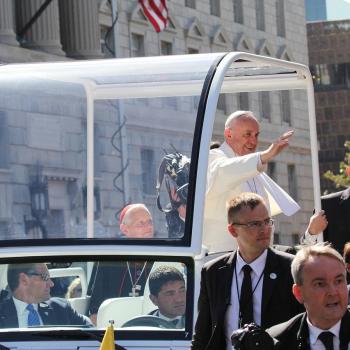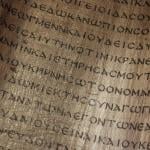JOHN ASKS:
Could you explain something of the Roman Catholic belief in Purgatory — its scriptural underpinning, etc.?
THE GUY ANSWERS:
This f0llows up our August 9 item “What happens after death?” Catholic belief in Purgatory, a state of “final purification” between death and entry into God’s presence in heaven, is contested by other Christians. Protestants think this contradicts the Bible or at least lacks scriptural support. The Eastern Orthodox uphold no Purgatory doctrine and oppose such unilateral assertions by the Catholic hierarchy.
Catholic edicts rely heavily upon theologians from Christianity’s early centuries and the Middle Ages. In the 1547 culmination, the Council of Trent answered Protestantism with an anathema against anyone who says “no debt of temporal punishment remains to be paid, either in this world or in the other, in Purgatory, before access can be opened to the kingdom of heaven.” A 1563 Trent decree says this tenet is “in accordance with sacred Scripture and the ancient Tradition of the Fathers” and therefore commands bishops to “strive diligently” to see that it is taught and believed.
For scriptural support, Catholicism relies especially on 2 Maccabees 12:45-6 (not found in Protestant Bibles), which says if Judas Maccabeus “was looking to the splendid reward that is laid up for those who fall asleep in godliness, it was a holy and pious thought. Therefore he made atonement for the dead that they might be delivered from their sin.” This is considered endorsement of prayers on behalf of the dead to modify the punishments in Purgatory. Catholicism also sees the following as a reference to purification after death: “If any man’s work is burned up he will suffer loss, though he himself will be saved, but only through fire” (1 Corinthians 3:15). The conservative Catholic Answers Website intereprets these verses as providing further support: Matthew 12:32 and 1 Corinthians 3:15.
Protestants say Catholics misapply those scriptures. An early Swiss Calvinist confession (1562) declared flatly that the Purgatory teaching “is opposed to the Christian faith” taught by Jesus Christ: “Truly, truly, I say to you, he who hears my word and believes him who sent me has eternal life; he does not come into judgment but has passed from death to life” (John 5:24). This is the lens through which Protestants see the promise of the Apostles’ Creed: “I believe in … the forgiveness of sins … and the life everlasting.”
Catholicism asserts the church’s related power to grant “indulgences” for specified acts of piety and charity on behalf of the living and the dead to reduce or remove “temporal punishments” due for sin. Trent abolished what it recognized as the “grievous abuse” of church sales of indulgences that originally sparked Martin Luther’s Reformation protest. (Luther still believed in Purgatory at first but later eliminated this belief.)
A 1967 papal decree reaffirmed the system of indulgences, “which the entire Church illumined by the Word of God has always believed” but eliminated the traditional measurement of penalties in terms of “days and years.” During the current “Year of Faith” proclaimed by Pope Benedict that concludes November 24, the church will grant a “plenary indulgence” for specified deeds that removes all punishment due for “venial” (minor and easily pardoned) sins.
Here’s further explanation from Catholic Answers. (Note this says what “Fundamentalists” believe when it’s actually what “Protestants” believe — a frequent tic among Catholic defense writers):
www.catholic.com/tracts/purgatory.
Papal decree on indulgences and Purgatory (1967):












